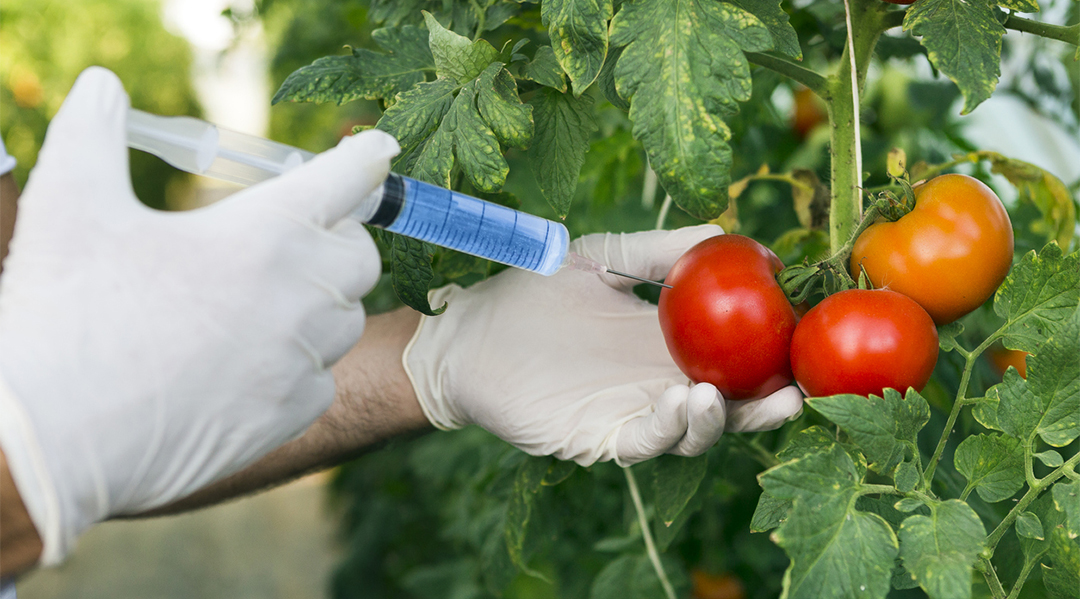GMO Screening by PCR Testing
Genetically Modified Organism (GMO) screening via Polymerase Chain Reaction (PCR) testing is a pivotal tool in ensuring food safety, regulatory compliance, and sustainability within the agricultural sector. The process involves amplifying specific segments of DNA to detect the presence or absence of genetically modified traits. This method offers unparalleled accuracy, speed, and cost-effectiveness, making it indispensable for quality managers, R&D engineers, procurement officers, and compliance professionals.
The PCR test begins with DNA extraction from plant tissues using standard protocols. The extracted DNA is then subjected to a series of thermal cycles that amplify the target sequence specific to the GMO trait in question. This process not only ensures the detection of known GMOs but also allows for the identification of novel genetic modifications. The sensitivity and specificity of PCR make it an essential tool for verifying compliance with international standards such as ISO 15038, which outlines guidelines for the detection of genetically modified organisms.
The reliability of PCR testing extends to various sectors like biotechnology, food safety, and environmental monitoring. In agriculture, it helps in tracking the spread of GMOs and ensuring that crops meet labeling requirements. For forestry, PCR can assist in verifying the authenticity of wood products and identifying genetically engineered trees. The PCR process is highly customizable, allowing for the development of specific primers to target unique genetic markers.
The importance of PCR testing cannot be overstated in maintaining consumer confidence and regulatory compliance. By providing accurate and rapid results, it supports the ethical use of biotechnology in agriculture and forestry. This service plays a critical role in protecting consumers from unintended exposure to genetically modified foods and ensures that products meet strict international standards.
In conclusion, GMO screening by PCR testing is a cornerstone of modern agricultural and forestry practices. Its precision and reliability make it an indispensable tool for ensuring the integrity of food supply chains and promoting sustainable agricultural development.
International Acceptance and Recognition
GMO screening by PCR testing is widely recognized and accepted across numerous international standards, including ISO 15038 and IEC 61967. These standards provide a framework for the accurate detection of genetically modified organisms in various sectors, ensuring that PCR results are reliable and consistent.
- ISO 15038: This standard specifies procedures for the detection of genetically modified organisms in feedstuffs, foodstuffs, and certain other raw materials. It ensures that PCR tests meet stringent quality control measures and provide accurate results.
- IEC 61967: This standard focuses on the harmonization of test methods used to identify GMOs in agricultural products. By adhering to these standards, laboratories can ensure their PCR testing services are aligned with global best practices.
The acceptance of PCR-based GMO screening is further bolstered by its widespread use in regulatory frameworks such as those established by the European Union (EU) and the United States Food and Drug Administration (FDA). Both entities require rigorous testing to ensure the safety and authenticity of genetically modified crops and foods. Compliance with these regulations underscores the importance of PCR testing in maintaining consumer trust and ensuring market access.
By adhering to international standards, laboratories offering PCR-based GMO screening services can demonstrate their commitment to quality and reliability, thereby enhancing their credibility in both domestic and export markets.
Environmental and Sustainability Contributions
- GMO testing by PCR helps in monitoring the spread of genetically modified crops. This ensures that unintended cross-contamination does not occur, thereby protecting native ecosystems.
- The precision of PCR allows for the accurate identification of GMOs, which can aid in the development of sustainable agricultural practices. By knowing exactly what types of genetic modifications are present, farmers and researchers can make informed decisions about crop management.
GMO screening by PCR also contributes to environmental sustainability by facilitating the traceability of genetically modified organisms. This traceability is crucial for ensuring that only authorized GMOs are used in agriculture, thereby reducing the risk of unintended ecological impacts.
| Environmental Impact | Sustainability Contribution |
|---|---|
| Reduction in cross-contamination risks | Promotes biodiversity and ecosystem health |
| Aid in the development of sustainable agricultural practices | Enhances traceability of genetically modified organisms |
The PCR-based GMO screening process is not only a tool for compliance but also a means to support environmental stewardship. By minimizing the risks associated with genetic modification, this service helps in maintaining ecological balance and promoting sustainable agricultural practices.
Use Cases and Application Examples
- Food Safety: PCR testing ensures that food products are free from unintended GMO contamination, thereby enhancing consumer confidence.
- Agricultural Compliance: Laboratories use PCR to verify compliance with international standards and regulations regarding genetically modified crops.
- Forestry Authenticity: In forestry applications, PCR can be used to ensure the authenticity of wood products and identify any genetically engineered trees.
The versatility of PCR testing extends beyond these primary use cases. It can also be employed in research settings to study the effects of genetic modifications on plant performance. For instance, researchers might use PCR to monitor how specific genetic traits influence crop resistance to pests or disease.
| Use Case | Description |
|---|---|
| Food Safety | Ensures that food products are free from unintended GMO contamination, thereby enhancing consumer confidence. |
| Agricultural Compliance | Verifies compliance with international standards and regulations regarding genetically modified crops. |
| Forestry Authenticity | Ensures the authenticity of wood products and identifies any genetically engineered trees. |
In addition to these applications, PCR testing can be used in scenarios where there is a need for rapid and accurate identification of GMOs. This capability makes it an essential tool in both research and commercial settings.





